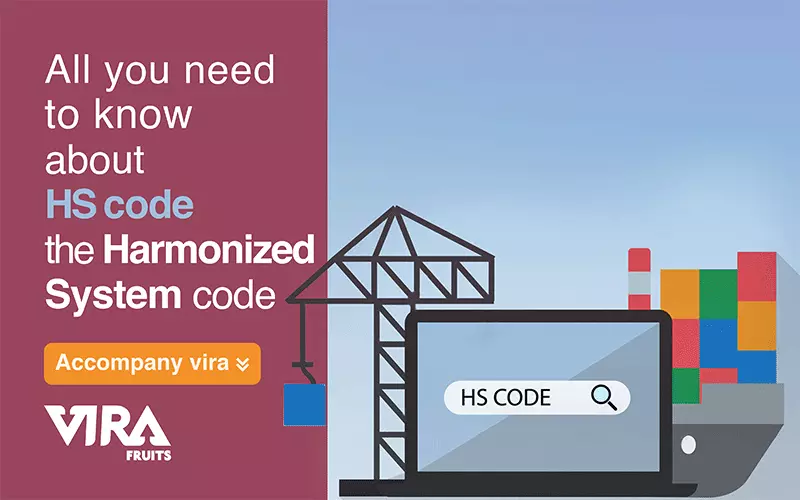The Harmonized System Code is abbreviated as HS code. World Customs Organization (WCO) created it as a multipurpose international product nomenclature that explains what kind of goods are being shipped. Businesses are required to use the HS code to code products entering or crossing international borders today.
The Harmonized System (HS) Code is a standard industry classification system commonly used often in the export process. It is a standardized numerical method for defining and classifying products traded between nations. In addition to assessing duties and taxes, customs authorities worldwide use it to gather statistics on products.
The usage of Harmonized System code
The HS Code is used to describe more than 98% of all goods in international trade. In addition to governments, private companies and international organizations also use the harmonized system code. Here is a list of harmonized system usage:
- Internal taxes
- Rules of origin
- Price monitoring
- Transport statistics
- Traffic statistics
- Monitor, update, and optimize controlled products
- Economic research and analysis
- Trade policies
- Quota controls
- Compilation of national accounts
- Freight tariffs
Therefore, the HS code is used by international commerce, economics, and commodity codes as an essential tool. A shipper’s most important step before entering the importing and exporting business is to assign an HS Code. The significance of the HS code may be underestimated by importers and exporters.

Risks of an incorrect HS Code
The majority of suppliers ship their products without knowing their HS code and simply accept importer purchase orders. In case you ship your goods before assigning the harmonized system code, you have run a huge risk of ruining and damaging one’s reputation and a cost and harm for both parties. In addition, the following issues can arise:
· Risk of delays
When customs brokers do not identify the commodity and its HS codes, this can result in delays and storage charges from the vessel arriving before the free time is up at the terminal for the vessel.
· Effect on Duty Rates
The consequences of not assigning an HS code or providing an incorrect one are potentially very costly and commercially risky. It is imperative to understand duty tariffs as part of the shipping process. Additionally, countervailing and anti-dumping duties are closely linked to HS codes as well.
· Regulatory risk:
Regulators can also impose penalties on shippers. If the HS code is incorrect, the importer can be fined for being too inaccurate or overpaying the duty.

The importance of correct HS Code
In addition to its versatility, the HS code is widely accepted and used as a global commodity code for goods and has been incorporated into numerous global customs clearance systems.
Customs may consider incorrect usage of HS codes to be noncompliance, misleading, or misdeclaration, each of which comes with its own penalty. Importers must use the right HS code and interpret it correctly to avoid penalties.
In some instances, it can be quite complicated to determine the correct HS code since the interpretation of the HS codes can vary from country to country and from customs authority to customs authority. Customs may apply a tariff incorrectly if the HS code is used incorrectly, resulting in exponentially higher prices for customers.
To make sure that you are using the right Harmonized system cod, you can use search tools, go through the HS code list, ask experts for advice, or consult customs directly.
Conclusion
Finding the right Harmonized System Code is one of the most important steps you need to take as a businessman. This code is the same for a specific product in all countries, but the four last number that is replying to a country varies. So determine that if you are exporting, the correct HS code needs to be found in order to facilitate exports.
